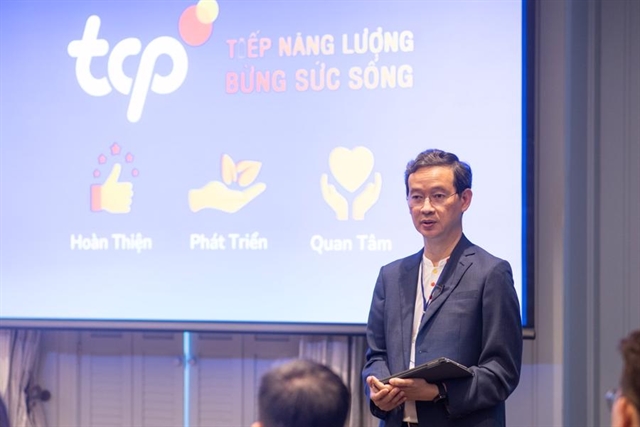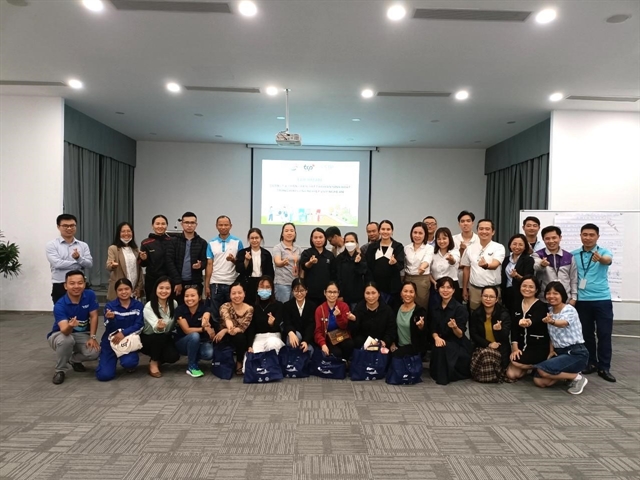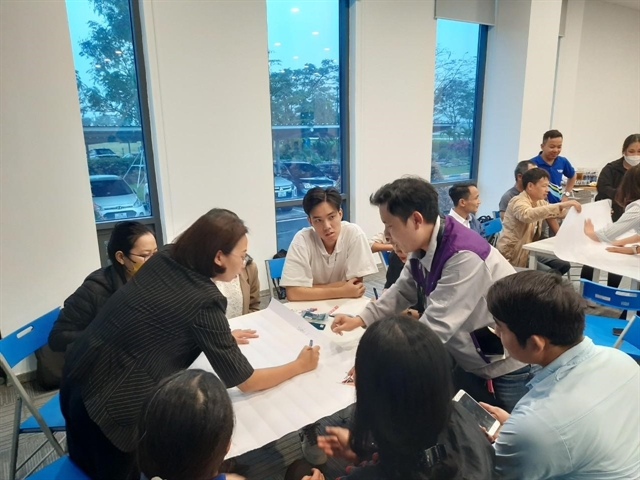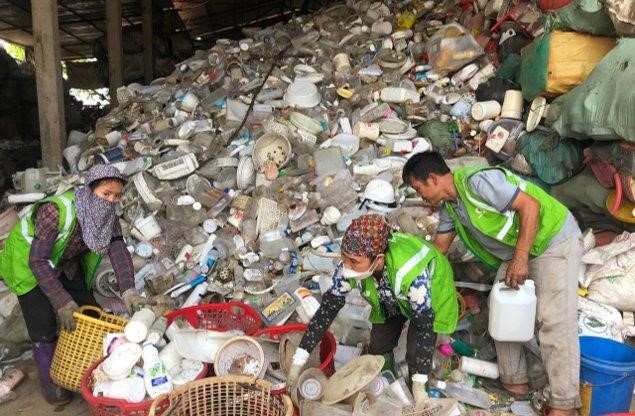 Environment
Environment

HÀ NỘI - During a business trip to Vietnam this year, Saravoot Yoovidhya, CEO of TCP Group (Thailand) announced TCP’s new purpose "Energizing a better world for all" and the group’s commitment to sustainable development.
As one of Thailand's leading beverage corporations, TCP has always focused on sustainable development and made positive contributions to the environment in its operating countries including Việt Nam.
With the new purpose, in the 2022-2024 period, TCP aims to elevate its environment sustainability initiatives by focusing on three urgent challenges including achieving carbon neutrality in all operation activities by 2050, developing packaging to be 100 per cent recyclable, increasing production efficiency, reducing water usage, and replenishing more water for the environment than the company uses.

|
| CEO of TCP Group - Saravoot Yoovidhya during his latest visit to Việt Nam, stressed that Việt Nam is a key market for TCP in terms of both business and sustainability. |
With iconic energy beverage products like Red Bull and Warrior, TCP Group deeply understands the value of collecting, recycling, and remanufacturing used packaging. The group is determined to reach a rate of 100 per cent in producing recyclable packaging. Thereby, the R&D team of TCP has consistently conducted research and made efforts to innovate product packaging to ensure that all the cans and bottles of the group are recyclable.

|
| TCP Vietnam and employees of enterprises at VSIP Nghe An at the training session "Management and sorting of industrial solid waste" |
Along with enhancing packaging production, TCP Vietnam has also proactively taken part in community activities to collect and recycle packaging waste. Following the announcement of the new business strategy, TCP Vietnam has collaborated with the International Union for Conservation of Nature (IUCN) and Vietcycle (VCC) to develop a pilot project on collecting, sorting, and recycling of packaging, demonstrating the company’s commitment to adhere to requirements on recycling rates and procedures for its products under the Extended Producer Responsibility (EPR).

|
| Employees of enterprises at VSIP Nghe An discuss in groups during the training session "Management and sorting of industrial solid waste". |
The project is designed to test the pilot model of collection and sorting the company’s recyclable packaging waste such as aluminum cans, PET bottles, and carton papers before sending them to recycle at specialized recycling companies. This effort is made for TCP Vietnam to achieve two parallel goals: improving production efficiency and lowering impact on the environment in compliance with the new EPR decree in Việt Nam. The project aims to promote waste sorting and increase recycling rates in industrial zones in Nghệ An, Bình Dương and Hà Nội.

|
| The recycling project between TCP Vietnam, IUCN and VCC has been implemented in the first stage |
In November, TCP Vietnam implemented the training program "Management and sorting of industrial solid waste" at the Vietnam Singapore Industrial Park (VSIP) in Nghệ An Province with an aim to lay a strong and long-lasting foundation for waste sorting and recycling. The training session helped increase awareness of the benefits of waste sorting and environmental conservation. Concurrently, legal documents on solid waste management were also covered at the training.
Country Director of TCP Vietnam, Nguyễn Thanh Huân, said: “Since day one in Việt Nam, TCP has actively served Vietnamese consumers' diverse needs. With a growth strategy, the values inherited from TCP Group, and local understanding, we have made the first steps in the “thousand mile journey” to move forward the circular economy and promote the implementation of EPR in Việt Nam."




